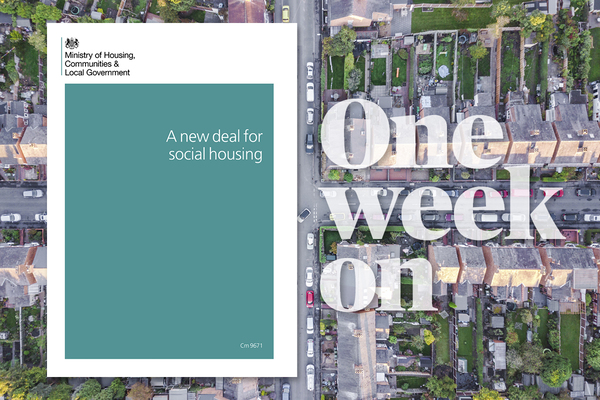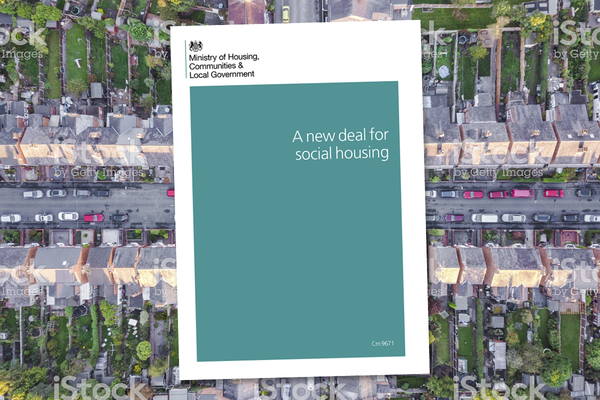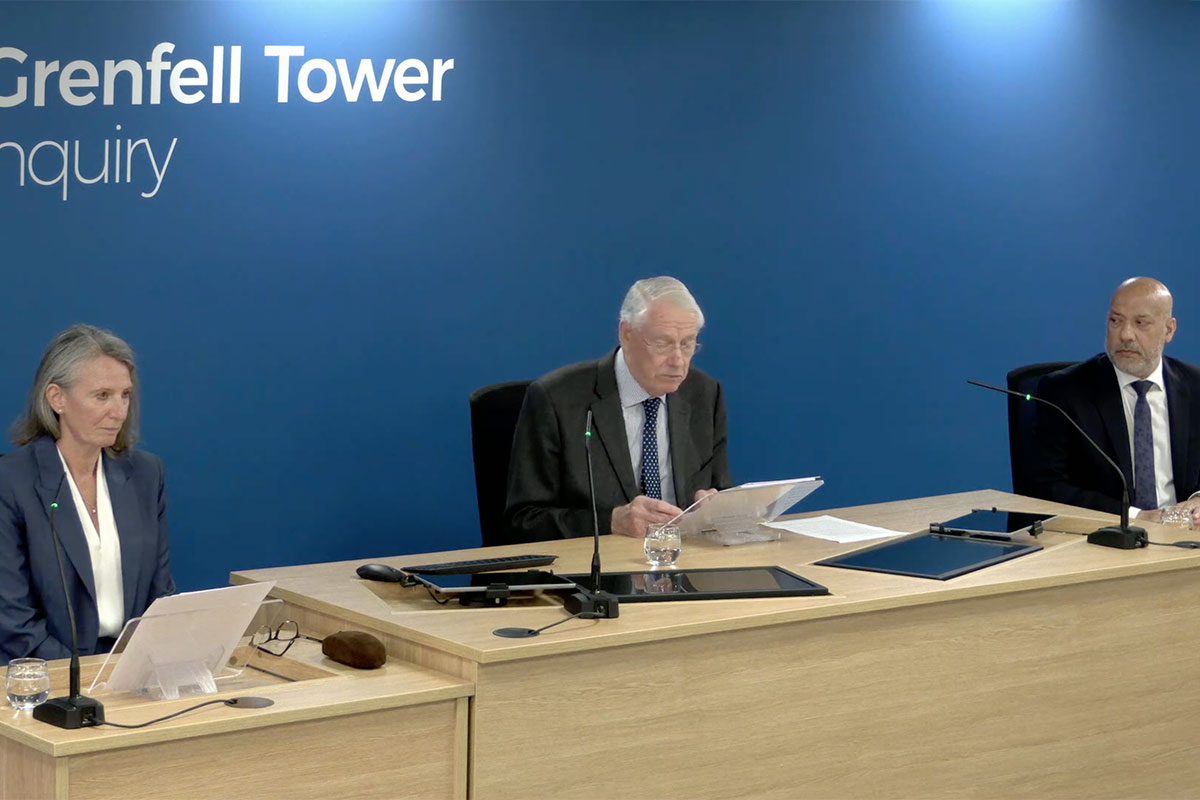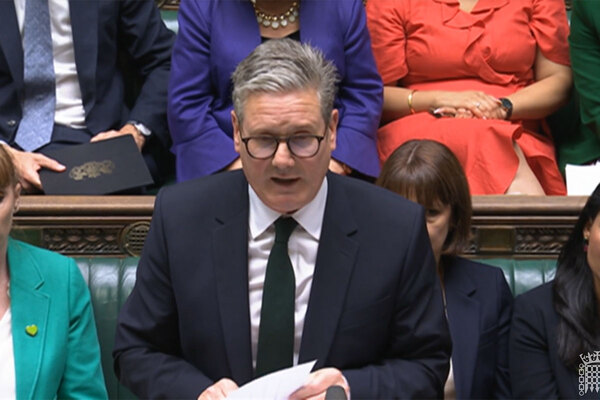You are viewing 1 of your 1 free articles

Steve Douglas is chief executive of St Mungo’s
Regulation: which way will the pendulum swing?
Ten years on from the global banking crisis, Steve Douglas says there are lessons to learn for social housing regulation.
Last week Gordon Brown – former prime minister and Bob Diamond – former CEO of Barclays Bank provided their reflections on the Lehman Brothers’ collapse, 10 years on.
They had different perspectives. Mr Brown was concerned that lessons hadn’t been learned and that future crises were inevitable. Mr Diamond believed strongly that the regulator had become so risk averse that it was stifling innovation.
His argument was that it was the responsibility of leaders to take the right decisions. Both were taking the view that the pendulum of oversight and control had swung the wrong way. Both were at opposite ends of the scale.
“The pendulum of regulation, as expected by government, swings in turn from very hands on to hands off assurance-based, depending upon events”
We may be in a similar position with the debate about our own sector’s consumer regulation. In a world that involves risk and uncertainty, and requires effective oversight and responsibility, the pendulum of regulation, as expected by government, swings in turn from very hands on to hands off assurance-based, depending upon events.
The current consultation on the future of consumer regulation, as part of the recently published Social Housing green paper should be understood in that context.
The Grenfell Tower tragedy rightly demands that we reflect on how we prioritise the safety of our homes and hear the voice of our tenants. And that there is a question regarding the powers and role of the regulator in this space should come as no surprise.
But government’s priorities change. It is 10 years on from Lehman, it is also 10 years on from the creation of the Tenant Services Authority, launched with a fanfare as a consumer champion.
It is also almost 10 years on from the mark to market liquidity crisis that saw a handful of housing associations come close to technical insolvency.
While we may debate how well the regulator performed its tenant champion role and indeed whether it was the right role, no one can argue that its role in protecting and maintaining the financial reputation of the sector was assured.
Governance and viability were then, and must be still, core functions of the regulator in my view.
The abolition of the Tenant Services Authority, sacrificed to the bonfire of the quangos, pushed the pendulum of regulation to a backstop role on consumer issues.
“We must therefore ask ourselves honestly, whether in the absence of the regulator in that space, we have done enough for our residents to have trust and confidence in us”
In doing so, the responsibility fell full square on the leadership of housing providers. Oversight and responsibility has therefore been a role for boards. And that has to be right.
We must therefore ask ourselves honestly, whether in the absence of the regulator in that space, we as boards, senior executives and leaders have done enough, for our residents to have trust and confidence in us as providers.
If the pendulum on consumer regulation is to stop somewhere sensible, we need to regain that trust, accept that we may be rightly challenged on our performance and demonstrate that we do take the tenant’s voice seriously.
We should not baulk at the challenge. For after all our core social purpose is fundamentally about doing the right thing for our residents, both current and future.
Steve Douglas, partner, Altair
Social Housing Green Paper: full coverage
All our Social Housing Green Paper coverage in one place:
Green paper measures are not enough to create May’s ‘new generation’ of council homes Green paper proposals are welcome but much more is needed to support councils to build, writes John Bibby
Green paper shows ministers now see associations as trusted partners Focusing on the failure of the green paper to address supply misses the point, writes Boris Worrall
Government should focus on building on what is already strong Philippa Jones considers the Social Housing Green Paper through a slightly different lens
We need more than a week of delayed announcements bundled together Jules Birch reflects on the government’s ‘Housing Week’ announcements
The regulator should monitor how associations assist homeless people Government announcements this week are positive, but any enhanced role for the English regulator should include looking at homelessness prevention work, argues David Bogle
The regulator’s role should be limited to dealing with systemic failures Julian Ashby suggests the Housing Ombudsman Service should deal with all complaints
The green paper shows ministers are in listening mode Despite some glaring omissions, the government appears to be in listening mode and it is important the sector takes advantage, argues Emma Maier
A short history of social housing league tables Attempts to create league tables for housing associations are nothing new. Mervyn Jones looks at how they have worked in the past
League tables could prove blunt and counter-productive, sector warns Housing figures criticise government proposals to measure social landlords against performance indicators
Government ‘must decide how proactive regulator should be’ on consumer standards Ministers now face a dilemma over the regulator’s focus, sector figures say
The Green Paper: a golden opportunity missed? Melanie Rees assesses the Social Housing Green Paper against recommendations drawn up by the Chartered Institute of Housing and finds the government comes up short
Longer strategic partnerships and guranteed debt to boost social housebuilding The Social Housing Green Paper outlines key ways of boosting supply
The green paper is remarkable progress but it is still not enough The green paper suggests the government appears to be re-writing much of its policy since 2010, but more needs to be done, writes Jules Birch
Green paper marks a ‘milestone’ on resident involvement The government’s recognition residents need clear information is to be welcomed, now it up to the sector to embrace tenant involvement, writes Paul Hackett
Ministers consider stock transfer programme to community-led associations The stock transfer programme could be revived under proposals in the housing green paper
Access to housing grant could be tied to new league tables Grant could be awarded according to how well landlords meet performance indicators, the paper suggests
Ofsted-style regulation of tenant services proposed The government is considering expanding the Regulator for Social Housing’s remit to intervene over tenant services and give it a more “proactive approach to enforcement”
Government proposes dropping one-for-one Right to Buy replacement commitment A consultation paper published alongside the green paper proposes a broader measurement to replace the one-for-one pledge
A list of recent housing policy U-turns The green paper confirms yet more housing policy U-turns from the government, which has spent the past two years dropping policy ideas developed under the David Cameron government. Here is a rundown of the major changes in policy direction
Sector welcomes green paper but calls for more ‘ambitious investment’ Reaction to the proposals, from the National Housing Federation, Chartered Institute of Housing and more
Morning Briefing: reaction to green paper announcements how the media reported the proposals trailed by the government overnight
Government drops plans to force councils to sell higher-value stock The government drops plans to force councils to sell higher value homes
League tables and ‘sharper teeth’ for regulator in social housing green paper Ministers reveal some of the things in the paper ahead of its publication
Grenfell survivors: green paper does not go far enough survivors of the Grenfell Tower fire have said the measures published in the Social Housing Green Paper do not do enough to rectify issues in the social housing sector
KEY PROPOSALS IN THE SOCIAL HOUSING GREEN PAPER
- New 'league tables' of housing providers based on key performance indicators, surrounding services such as repairs and neighbourhood management. This could be linked to housing grant.
- Consideration to scrapping of the current 'serious detriment' test, to allow 'Ofsted-style' tougher consumer regulation
- New home ownership options such as allowing tenants to buy as little as 1% of their property each year through shared ownership. This would only apply to new shared ownership purchases.
- Ditching of plans to force social landlords to offer fixed term tenancies rather than lifetime tenancies in social housing
- Ditching of plans to force councils to sell off their most valuable social housing when it becomes vacant
- The potential introduction a new stock transfer programme from councils to 'community-led' housing associations
- The return of guaranteed debt funding to help the development of affordable homes, and longer term 'strategic partnerships' for developing housing associations












